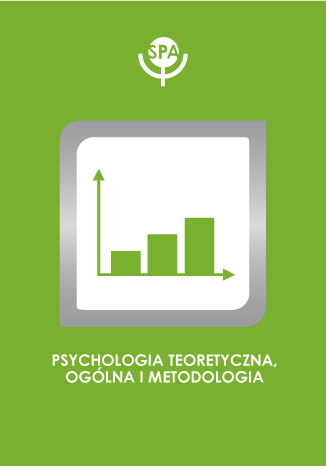Array
(
[id] => 640
[date] => 2019-06-30
[doi] =>
[title] => Wpływ samokontroli na wartościowanie treści związanych z zadaniem
[title_en] => THE EFFECT OF SELF-CONTROL ON EVALUATION OF MEANINGS RELATED TO A TASK
[authors] => Alina Kolańczyk
[abstract] => We assume that a way of meanings evaluation, which serves a task solution, depends on regulatory focus and on self-control feeling. The promotion focus triggers self-control directed to a fulfillment. Subjectively one feels it as a weak. The prevention focus is in turn, related to attentive monitoring of all mistakes and imperfections, what results in effort feeling. We carried on experiments in both self-control conditions checking outa way of evaluation of objects fulfilling and unfulfilling the task criteria (before solution, however after announcement of the task). The material consisted of intensely emotional meanings – positive and negative as well. There was confirmed hypothesis that promotion focus with a weak self-control determines a raise of a mood and facilitates evaluations that are more positive (however mainly due to positive meanings). We found out a valuation of positive functional meanings for the task and devaluation of positive nonfunctional ones. In the strong self-control and prevention focus participants evaluated objects in more mild way (contrast shift), as the result of falsification, especially of extremely emotional meanings. In general, we confirmed the hypothesis that strength of self-control involved in regulatory focus determines ways of evaluation of functional and nonfunctional meanings for the task.
[abstract_en] => We assume that a way of meanings evaluation, which serves a task solution, depends on regulatory focus and on self-control feeling. The promotion focus triggers self-control directed to a fulfillment. Subjectively one feels it as a weak. The prevention focus is in turn, related to attentive monitoring of all mistakes and imperfections, what results in effort feeling. We carried on experiments in both self-control conditions checking outa way of evaluation of objects fulfilling and unfulfilling the task criteria (before solution, however after announcement of the task). The material consisted of intensely emotional meanings – positive and negative as well. There was confirmed hypothesis that promotion focus with a weak self-control determines a raise of a mood and facilitates evaluations that are more positive (however mainly due to positive meanings). We found out a valuation of positive functional meanings for the task and devaluation of positive nonfunctional ones. In the strong self-control and prevention focus participants evaluated objects in more mild way (contrast shift), as the result of falsification, especially of extremely emotional meanings. In general, we confirmed the hypothesis that strength of self-control involved in regulatory focus determines ways of evaluation of functional and nonfunctional meanings for the task.
[keywords] => self-control, meaning evaluation, tasks
[keywords_en] => self-control, meaning evaluation, tasks
[file_path] => /files/articles/2008-14-wpyw-samokontroli-na-wartociowanie-treci-zwizanych-z-zadaniem.pdf
[okladka] => psychologia_teoretyczna_ogolna_i_metodologia.jpg
[rocznik] => Rocznik: 2008 Tom: 14 Numer: 2
[strony] => 201-214
)










 Pobierz pełny tekst
Pobierz pełny tekst



